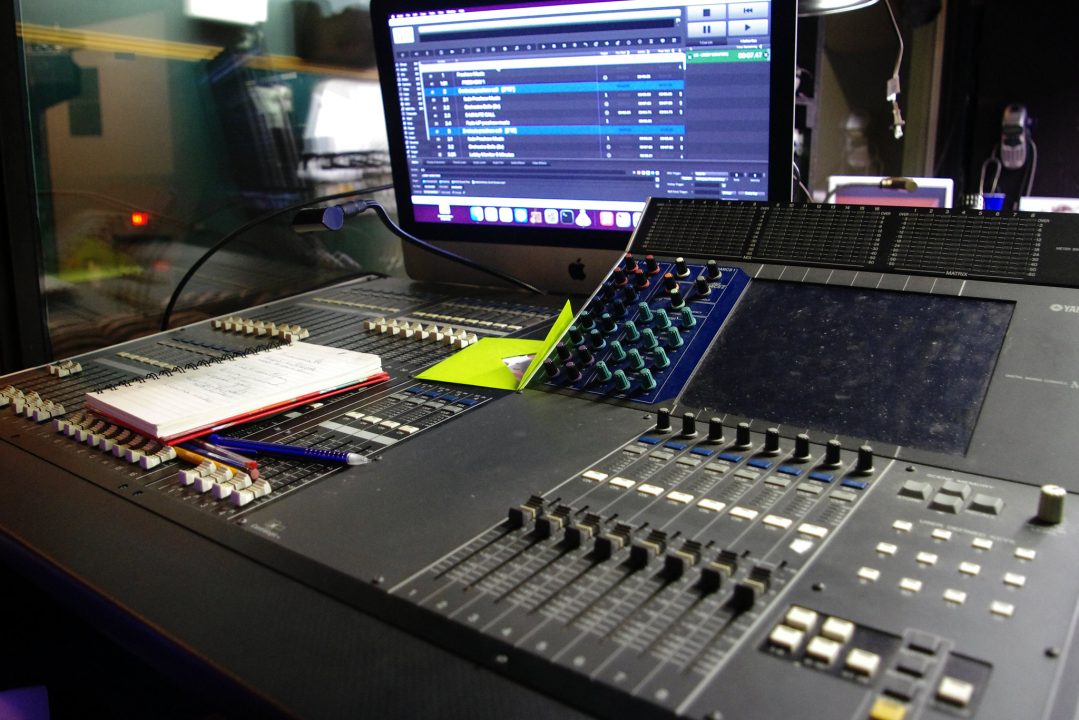VOLUNTEERS
Metro Theatre Is Fuelled By Volunteers. We Are Always Looking For Friendly, Outgoing People To Help Make Our Patrons’ Theatre Experience The Best It Can Be. If You’re Interested In Taking Tickets At The Door Or Helping Our Front End Public Engagement Activities, or maybe you’d rather work in the Production side of our shows? Drop Us A Note Or Give Us A Call. We Need And Appreciate Your Help.
Volunteers are at the Heart of Live Shows
There are two types of volunteers within the theatre world. FOH, or Front Of House, these are the people taking tickets, userhing people to their seats, working on concession or the lounge upstairs. Production volunteers are more involved with the actual staging of the show, from props and costumes to audio and lighting. Both sides of this are explained below and if you’d to get involved in either, just fill out the form and we’ll will get in touch with you!
FOH (Front of House) Volunteers
Front of House and Administrative Positions include:
BOX OFFICE AND PATRON SERVICES
Part time afternoon and performance evenings and matinees that help with:
• patron ticket sales by phone or in person
• reception
• deliveries
• helping patrons as required
Knowledge of theatre sales, marketing and rentals, cash and payment systems, human relations, as well as genuine Metro enthusiasm are important parts of this work.
Knowledge of “Theatre Manager” booking software and general theatre operations are also important assets.
BAR AND LOUNGE SERVICES
Part time as required, performance evenings and matinees for informal bar wine and beer services for patrons, before, after and during intermissions of performances (i.e. typically 7pm to 11 pm). Assist with inventory management and control, lounge clean up. Requires “Serving It Right” and “Food Safe” certificates and the ability to serve Metro’s patrons in a pleasant manner. Trust worthiness and reliability are key.
ASSISTANTS
Administrative assistants are daytime or evening shifts that end up 20 flexible hours/week that could include evenings and week-ends. Those hours could include Box Office, Front of House, supervision, bookkeeping, sales, set up, scheduling or work with production or marketing. Knowledge of Theatre Manager, Quick Books, Microsoft Office, other computer skills, theatre production or operations, and lots of enthusiasm are all good assets.
Some of these roles offer pay however the amount is in keeping with the spirit of Metro.
There is always the opportunity of promotion as well the enjoyment of being involved in the collaboration theatre requires, learning real life skills enjoying the joys of a successful performance.

Submit your FOH Application below:
Production Vounteers
Volunteer Production Areas:
PROPS: manage a collection of items that fit the period, script, style, size, color to help the evolution of the play.
COSTUME DESIGN: (see more below in COSTUME DESIGNER / COORDINATOR OVERVIEW)
LIGHTING DESIGN: based on set, scene and production to establish a supporting mood and re enforce the script
SET DESIGN: establish a workable setting to deliver the script’s story line
SOUND DESIGN: enforce the impact of sound from pre performance, through performance, and post performance.
PROPERTIES COORDINATOR
The Properties Coordinator is appointed by the Production Management Committee.
Working with the Director, Designers and the Stage Manager, the Properties Coordinator determine the props required in the production, according to the script, the design concept, period, type, style, size, colour and materials.
The Properties Coordinator is responsible for acquiring, assembling and managing the properties (props) required for a production. The first source for props is the Theatre’s Properties inventory and the Properties Manager.
When items are borrowed, the owner must be informed that Metro Theatre undertakes to safeguard the items, and return them in good condition, but that Metro Theatre cannot accept responsibility for loss or damage, whatever the cause, beyond the loss/damage provisions of the Society’s insurance coverage. If the owner wishes extra and specific insurance, Metro Theatre can arrange this, at terms to be negotiated between the parties and help of the Properties Manager.
Actually making props is also an option. The cost of materials to do this are weighed in the balance. It may make sense to just buy them outright and discussions with the Production Manager can help bring focus to this. It may depend on available resources and the financial plan. If there is need to rent or purchase an item that is unusual and possibly expensive, approval from the Production Manager will be needed.
The Properties Coordinator prepares a show list of all borrowed and rented items for their use and for the Production Manager, together with any acknowledgements and credits that should be published, with respect to materials and services contributed.
The Properties Coordinator supplies any props that are required for rehearsals (which need not necessarily be the actual props eventually used on stage), attends early rehearsals to provide them, and also observe who uses them, how and when. This knowledge is vital when the production comes to the stage.
When necessary, the Properties Coordinator is responsible for instructing actors on the use and any special handling of unusual or specialized props.
During the rehearsal period, the Properties Coordinator assists the Production Manager in recruiting sufficient backstage props ‘runners,’ to handle the props for each performance.
The Backstage Crew gets instruction on the proper care and handling of props plus encouraging them to attend rehearsals to understand prop use.
At Take-In, the Properties Coordinator works with the Stage Manager for the placement of the props table(s) backstage, out of the way of traffic.
Runners use those set up props table(s), with props set out in order, and their positions being marked allows any missing props to be readily identified, and help assure they are found in the dark.
The Properties Coordinator (if runners are being used) draws up a schedule for the runners, showing when each individual is required to be on duty, gives a copy of the schedule to the Stage Manager, and posts a second copy adjacent to the props table. He/she instructs runners on the importance of adhering to the schedule.
COSTUME DESIGNER / COORDINATOR OVERVIEW
The Costume Designer/Coordinator is appointed by the Production Management Committee.
The Costume Designer/Coordinator is responsible for outfitting the cast with costume, hats and personal accessories appropriate to the production, reflecting style, type, period, mood, level of affluence, the nature of the character, materials, and colours. A ‘Costume Plot’ is created – a list of the cast in a show indicating costume needs for them in each scene.
The Costume Designer must attend all Production Meetings with the Director, Set Designer, Scenic Painter and Set Decorator, to cover the requirements as the Costume Plot is brought forward for approval.
Once designs are approved, the Costume Coordinator arranges with the Director and Stage Manager for actors measurements to be taken – usually at the read through.
The Costume Coordinator attends and assists at any photograph sessions arranged by the Production Manager and Publicist.
The Costume Coordinator assembles costumes. The first source is the Theatre’s Wardrobe, and the Wardrobe Manager. The next source, is often the cast (actors often prefer their own clothing items, in which they feel comfortable). The Costume Coordinator may resort to local thrift shops as well. In all cases necessary alterations and adjustments ensure needed fit.
For special period costumes actually constructing them (or, as a last resort, renting them) may be needed. It may be more economical to purchase than to rent, so discussion with the Director and Production Manager may help.
At all times, attention must be paid to available resources and the financial plan. The General Manager approval before hand is required.
When items of clothing, accessories etc. are borrowed, the owner must be informed that Metro Theatre undertakes to safeguard the items, and return them in good condition, but that Metro Theatre cannot accept responsibility for loss or damage, whatever the cause, beyond the loss/damage provisions of the Society’s insurance coverage. If the owner wishes extra and specific insurance, Metro Theatre can arrange this, at terms to be negotiated between the parties. The Production Manager should be involved whenever this becomes an issue.
The Costume Coordinator prepares a list of all borrowed and rented items and gives a copy to the Production Manager and Stage Manager, together with any acknowledgements for the program, with respect to materials and services contributed to the show.
The Costume Coordinator is responsible for ensuring that Costumes and accessories used on stage (particularly borrowed or rented items) are kept clean and in good condition; this might include provision, and arrangements for the placing, of dust covers, or regular careful inspection and maintenance in between performances, and the periodic cleaning of items.
Approximately one week before Tech Week, the Stage Manager and Director will arrange for a ‘Costume Parade’ – a point in the rehearsal period at which Directors will require that all costumes be ready to be seen – and often a specific rehearsal is scheduled for consideration by the director, the costume designer, and others of the artistic leadership.
Submit Your Production Application Now:

